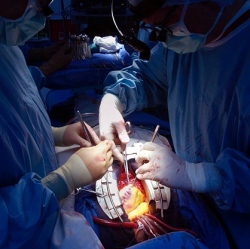
A pilot study undertaken by scientists at Imperial College London to treat recent stroke sufferers has shown promise in rapid treatment of serious strokes. Imagine a perfectly ordinary beginning to a your day, say burned toast, no matching pair of socks and the usual damp commute to work.
Except at some point through the usual minutiae you suffer a massive stroke. If you don’t die outright, you may soon afterwards. Even supposing you survive those first days or weeks the chance of your life resuming its comforting tedium is impossibly remote. You may need assistance for the rest of your shortened life. According to the Stroke Association, about 152,000 people suffer a stroke in the UK alone each year. However the five patients treated in the recent Imperial College pilot study all showed improvements. According to doctors, four of those had suffered the most severe kind of stroke which leaves only four percent of people alive or able to live independently six months after the event. All four of the patients were alive after six months.
The study, the first of its kind published in the UK, treated patients using stem cells from bone marrow. A particular set of CD34+ cells was used as they help with the production of blood cells and blood vessels’ lining cells. These same cells have been found to improve the effects of stroke in animals and they assist in brain tissue and blood growth in the affected areas of the brain. The CD34+ cells were isolated from samples taken from patients’ bone marrow and then infused into the affected area via an artery that leads to the brain using keyhole surgery.
